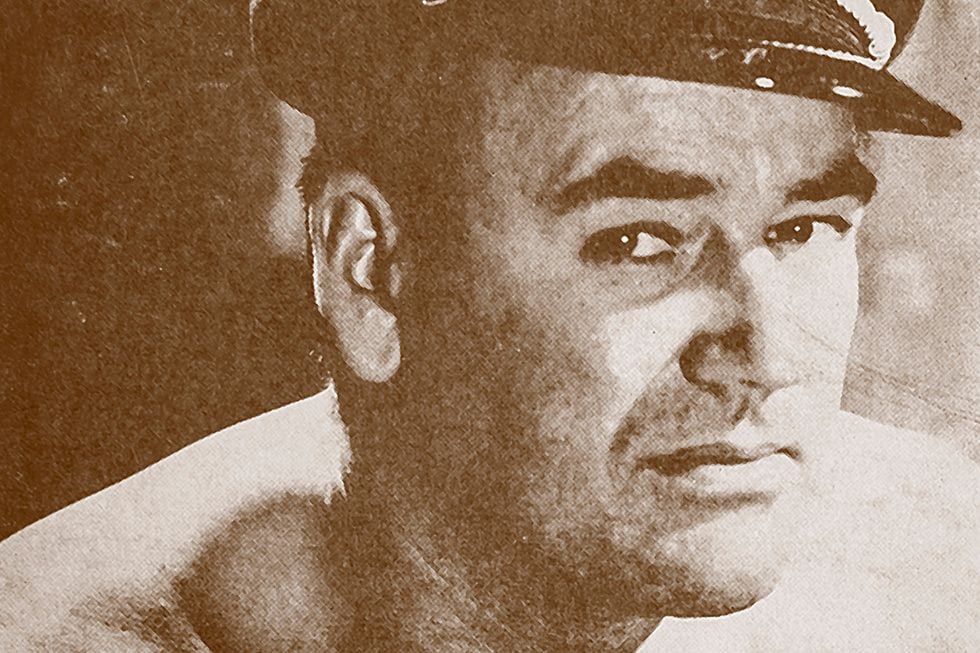
As even its creators and pioneers have admitted, the exotica music fad was one based on musical fantasies, on enticing images of faraway places bearing only a superficial resemblance to reality. The ideal exotica audience members were suburban Americans who would never see the lands they heard about, letting them live in someone’s carefully crafted imagination, adrift in a palatable fusion of inoffensive American pop and touches of something unfamiliar – and tantalizing for that very quality. With the benefit of hindsight, exotica is troublesome at the least and dehumanizing at the most, a two-dimensional construction of real cultural experiences.
It behooves a socially-conscious listener, then, to be thoughtful in listening to Pacific Paradise, the new rerelease of tiki-bar ready rarities from singer-songwriter and bandleader Paul Page and his group Paradise Music. Certainly, the songs don’t give us an accurate insider’s portrayal of Polynesian culture, but they serve as an excellent lens through which to understand how, in decades past, mainland Americans became fascinated with romanticizing South Pacific people and space, with the idea of a utopia more natural than those bound by white picket fences. “Blue are the skies / As blue as your eyes,” sings a prim chorus on “Pacific Paradise” and life beyond known social conventions, where unbuyable riches and friendly women abound (“It doesn’t cost a cent for her upkeep / ‘Cause there’s nothing that she needs / All she wears is a great big smile / And a little string of beads” is the dubious description of the titular figure from “My Fiji Island Queen”).
Across the compilation, Page captains a carefree ship of dreams, sailing from port to port to the idyllic sounds of vibraphones and steel guitar, telling whimsical tales of grass shacks and lovestruck sailors, bringing in gongs to evoke a stereotypical Far East on “China Nights” and “Kissy Ling” that make us cringe today – but that Page knew would stimulate the minds of so many trapped in the daily grind, that would turn their heads from the mundane, that would give the lower 48 something fresh and new.
Even now, it’s hard not to be transported by the sounds of “Blue Lagoon” – lilting organs, chirping birds, and Page’s classic crooning come together in a sublime love song for a warm night in fresh water – and therein lies the tension of Pacific Paradise. This is music made for the escapism of a privileged few, for them to go “Beyond The Reef” or to “Bali Hai” for a few blissful minutes. To his credit, Page and his band did eventually make it to Hawai’i, and his repertoire means to promote love for the islands – or, at least, for his idealized vision of them. Whether or not those good intentions translate to any actual benefit for the subjects of his songs may be impossible to know for sure – it’s hard not to ponder the question, though, as Page namechecks Big Island beaches in his steady Hoosier accent.
Pacific Paradise evokes faded images of islands from decades-old postcards, pictures from a time when the colonialism long embedded in the American way was far more overt. From a historical viewpoint, what Subliminal Sounds has done in terms of compilation and remastering is remarkable; much of this music was all but lost, buried as exotica disappeared to be replaced by new market trends reflecting new realities of globalization. This is an album to be questioned, though, not listened to complacently, and whether now is an appropriate time to release something so comfortable in the way it simplifies island life is something that, personally, gives me pause. Now, though, its release gives a new listening audience a chance to understand the past from a different point of view – not to necessarily treat it as an acceptable way to continue, but to better know how Anglo American musicians have treated the Pacific Rim and all the islands in between over time, whether we like it now or not. If we can critically think along those lines, then Pacific Paradise may yet lead its listeners to a more enlightened place.

